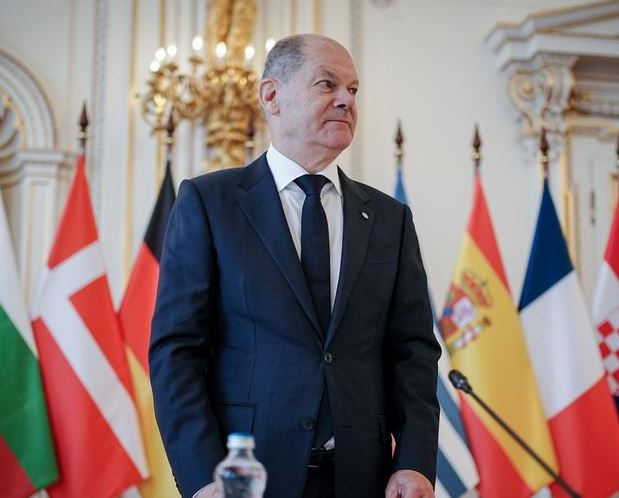Berlin: Germany’s main opposition party said Tuesday that it will seek a parliamentary inquiry into Chancellor Olaf Scholz’s handling of a tax evasion scam involving a private bank before he became the country’s leader.
The centre-right Union bloc said it will call for the national parliament to set up a commission of inquiry when it returns after the Easter break in mid-April. That should be a formality because it requires the backing of a quarter of all lawmakers, and the Union — with 197 of the lower house’s 736 seats — holds more than that.
The issue has been a longstanding, though so far minor, irritant for Scholz. An inquiry is already underway in the state legislature in Hamburg, where Scholz was mayor from 2011 to 2018. He then served as Germany’s finance minister until becoming chancellor in late 2021.
Testifying in Hamburg in August, Scholz denied intervening on behalf of the bank involved in the scam. He said that “there was no political intervention whatsoever.”
Scholz insisted that meetings he held in 2016 and 2017 with a representative of M.M. Warburg were above board. At the time, the bank had been ordered to repay millions of euros (dollars) in tax refunds it had wrongly claimed for share trades.
Soon after the meetings, Hamburg officials dropped demands for Warburg to repay 47 million euros ($ 51 million).
Conservative lawmaker Matthias Hauer, a member of parliament’s finance committee, said the Union was calling for a commission of inquiry because previous attempts at federal level to get information from Scholz had been ignored or rebuffed.
“We’re not going to do what he would like and draw a line under this,” he said. “There are a lot of open questions, there are inconsistencies and above all there are contradictions. … We are going to stay on top of it.”
Dozens of bankers are being investigated in connection with so-called cum-ex share transactions that are said to have cost the German government billions of euros.
AP
